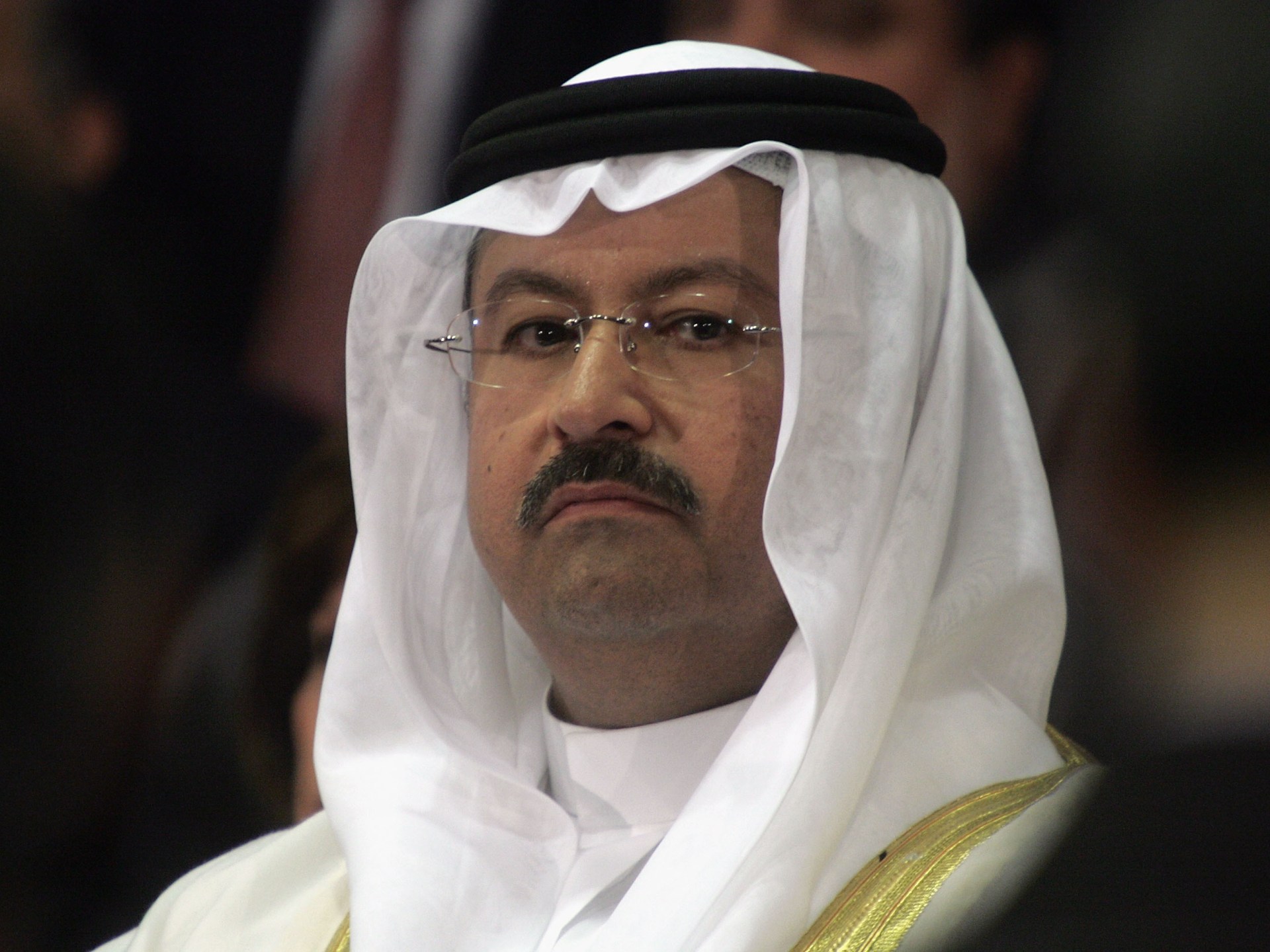Ghazi al-Yawar is a businessman and tribal figure, one of Iraq's most prominent leaders after the 2003 US invasion, serving as the first president after the overthrow of Saddam Hussein.
Al-Yawar has gained great acceptance within the Iraqi and international parties, due to his extensive relations and belonging to the Shammar sheikhdom, one of the largest tribes in Iraq and the region.
Birth and upbringing
Ghazi Meshaal Ajil al-Yawar was born on March 11, 1958, in Nineveh Governorate, in northern Iraq. His grandfather is one of the most prominent sheikhs of the Shammar clan, one of the largest and most famous Arab tribes, stretching in Iraq, the Gulf and the Levant.
Al-Yawar belongs to an ancient political family that succeeded in uniting all the Shammar tribes, after taking the city of Hail in northern Arabia as their center.
His family also played prominent roles in national action, especially during the Twentieth Revolution of the last century, when his grandfather Mohsen Ajil al-Yawar played a prominent role in the revolution.
Study and training
Al-Yawar spent his primary and secondary studies in Mosul, and moved in 1974 to Saudi Arabia after being accepted to study at King Fahd University of Petroleum and Minerals "Petroleum and Minerals" at the time in Dhahran, from which he graduated with a bachelor's degree in civil engineering, and returned to Iraq.
He then received his master's degree in civil engineering from George Washington University, United States.
Leaving Iraq
Al-Yawar decided to leave Iraq again before the invasion of Kuwait in 1990 and settled in Saudi Arabia, only after the overthrow of the former regime in 2003, when his clan was pressured and their money and land confiscated, due to their opposition to the policies of the government at the time.
In Saudi Arabia, where he lived for more than 15 years, Al-Yawar ran the telecommunications company Ha Cap Technology, owned by his uncle Sheikh Ahmed Nayef Al-Faisal Al-Jarba, and achieved great success in his work.
During his trip outside Iraq, he moved between Kuwait, Lebanon, Saudi Arabia, London and the United States, and succeeded in weaving a good network of relations, which made him eligible to take a prominent position after his return to Iraq in 2003.
Ghazi Yawar, the "interim president", was described as having the ability to make bold and appropriate decisions (French)
Iraq's first president
After returning to Baghdad, al-Yawar was chosen as a member of the Transitional Governing Council formed by U.S. forces in 2003, which he chaired after the assassination of its president, Ezzedine Salim.
With the arrival of the date of the US administration handing over power to the Iraqis, the name of Al-Yawar emerged alongside the veteran politician, former Foreign Minister in the sixties, Dr. Adnan Pachachi, but the latter apologized for assuming the post of President of the Republic, which was accepted by Al-Yawar, and he was named the first "interim" president of the country after Saddam.
His political positions
Yawar has been described as a "pragmatist capable of making bold and appropriate decisions" and has been known for his sharp criticism of the security policies of U.S. forces in the country.
In all his political activities, al-Yawar has stuck to traditional Arab dress, and has stated in a newspaper interview that he "will not accept the presidency unless it has real power."
He also demanded the evacuation of the Republican Palace in Baghdad as a symbol of Iraq's sovereignty, one of the official buildings occupied by US forces after the invasion and wanted to turn it into an embassy.
The Governing Council had said at the time that Al-Yawar assured US President George W. Bush, in a call in which he was condoling the death of Izz al-Din Salim, the desire of the Iraqi people to enjoy full sovereignty, through a new resolution from the United Nations that cancels the consequences of Resolution No. 1483, which legitimized the existence of the US invasion.
During the battle of Fallujah west of Baghdad in 2004, al-Yawar succeeded after long efforts in mediating an end to the bloodshed and was keen to participate in negotiations to stop the fighting at the time.

